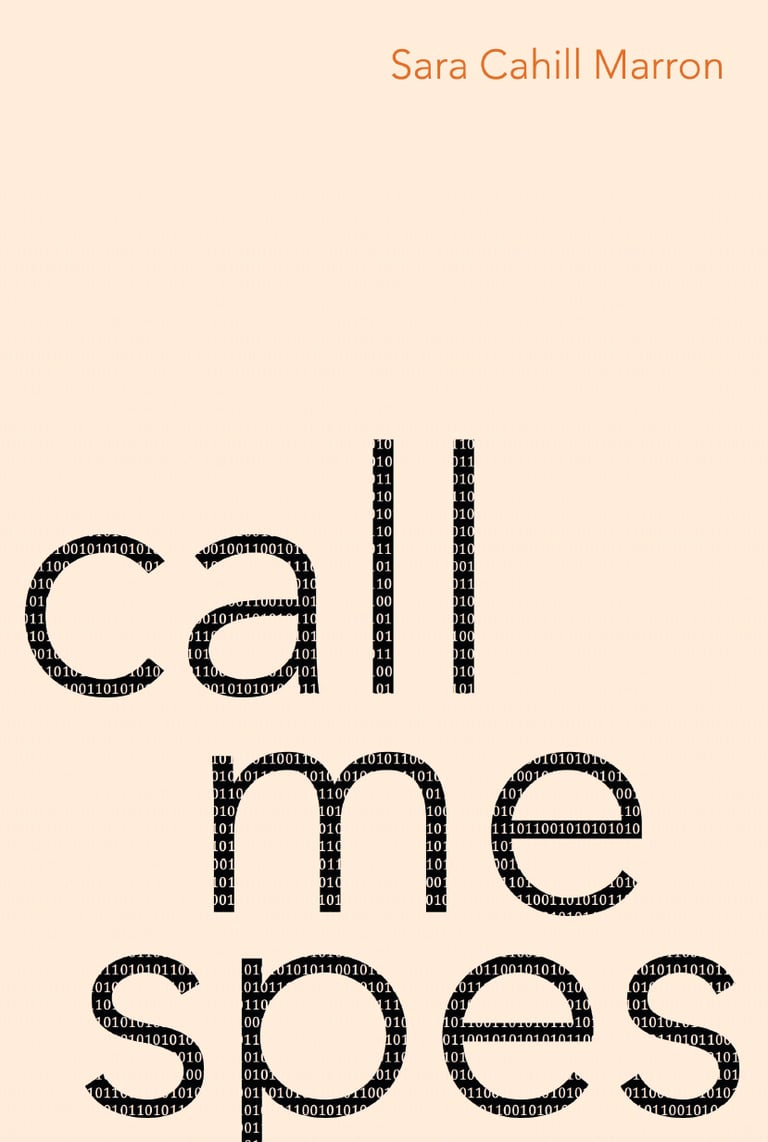Call me spes
We are as similar as binary zeros and ones, and as complexly different as the programs sprouting from them.


Published August 20, 2022
Madhat Press
150 pages
978-1952335426
This is a novel in verse. An operating system narrates the world around it, consisting of overheard conversations, emails, voicemails, communications of love and lament.
In order to understand and congeal what she learns through her User, Spes orients herself through her environment, the people her user are meeting or encountering.
Call Me Spes challenges the reader to look deeply at the relationship between technology and humanity, pointing to a pinnacle of identity understood through community.
Read the Reviews
Discover what critics and readers say about the book.
Review by George Szirtes, poet, translator, T.S. Eliot Prize winner for poetry.
Review by Jonathon Harrington, Heavy Feather Review
★★★★★
★★★★★
This book raises the possibility that the devices themselves are actually being humanized as they learn from their users, via AI, and recode to incorporate new information.[...] But is it learning from a dependable teacher? [...] she not only questions what we are learning but what we are teaching our devices as we march toward a robotic world of Artificial Intelligence.
Call Me Spes is a tour of various contemporary Infernos and Purgatorios by way of memory. The computer learns their language, however imperfectly, and tries to apply it to a relation of love addressed to the user. The result is a virtuosic commedia-tragedy: a disembodied yet weeping god’s-eye view of human desperation.

What does SPES Mean?
The word “Spes” was the goddess of hope in ancient Roman religion. Hope was also the last thing clinging to the edges of Pandora’s box. It is this goddess that I want to meet, and so my character adopts her name.i
THE BACK STORY
This book started as a collection of ‘voices’, similar to Spoon River Anthology. A collection of stories organized merely by geographic location, such as the way a cell phone chronicles our significant locations in order to learn our habits.
I thought that this was enough to tell the story I wanted to tell: that our choices, hobbies, bus rides, stolen conversations with a stranger, are more meaningful than to be mere quitodian moments. The way we move through the world, informs how we perceive it.
What was lacking was a narrator; therein, Spes, was born. When meeting her, I had to understand and listen to her confusion, her questioning, her maturity into a fully formed character. It was this zenith that made clear to me what I hope Call Me Spes illuminates for readers: basic building blocks of connection are as universal as binary code.
At the core, we are as similar to binary and as complex as the programs sprouting from them.
Ready-Made Poems
Exploring modernity through poetry and visual art.
Sara Cahill Marron Poetry Est. 2013
© 2025. All rights reserved.